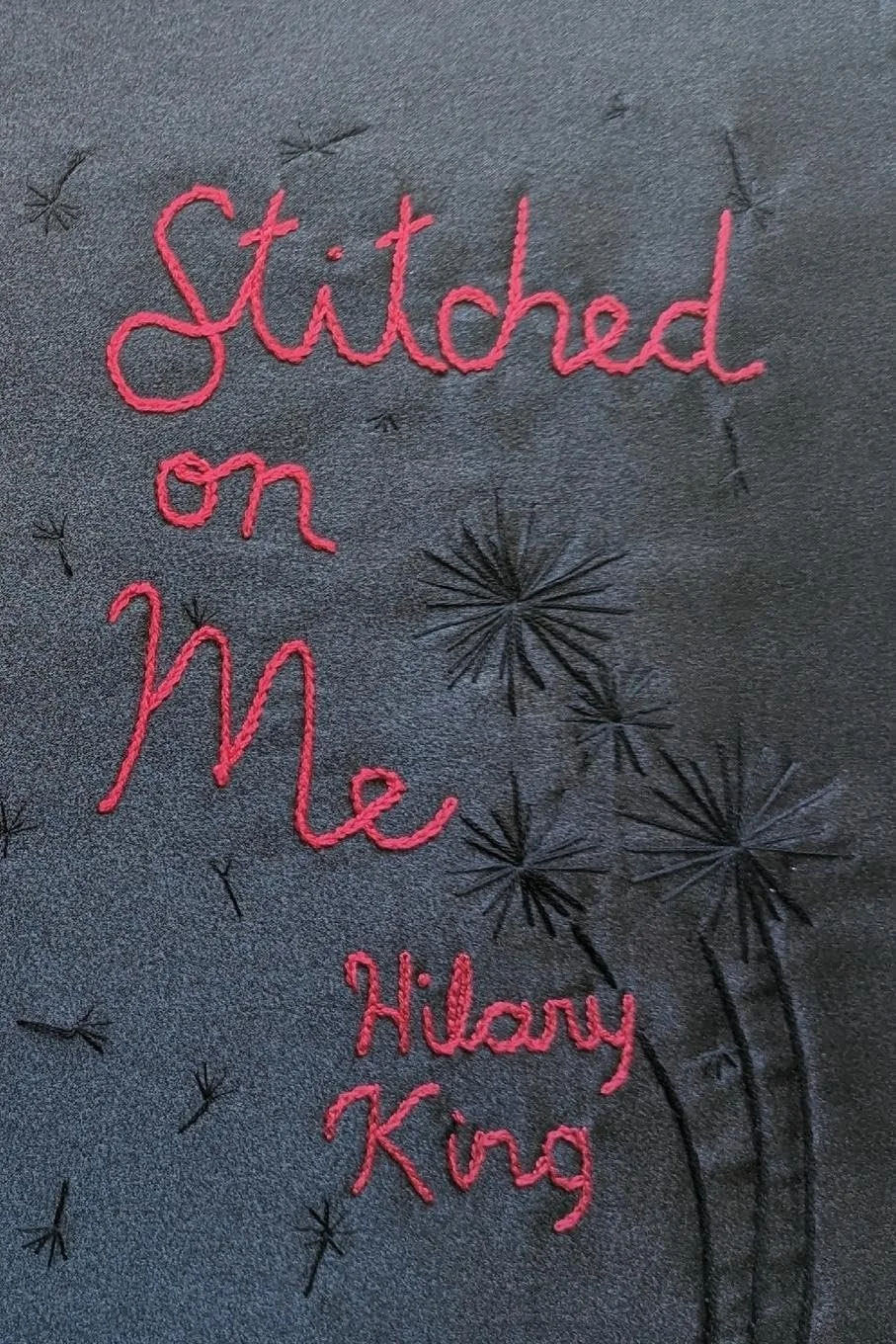Stitched on Me by Hilary King
reviewed by Rebecca Lemke
Hilary King’s poems focus on women’s insecurities, self-image, and societal standards that pit them against one another and result in struggles throughout their lives. Breaking the cycle of mothers criticizing their daughters’ looks and forcing them to conform to conventional beauty standards is the theme here.
In “How to Wear Your Mother” King relays the kind of insults mothers give their daughters:
You look
like
a sack of potatoes
[and]
You’d be
happier
if you lost weight.
The mother’s criticism eventually embeds itself within her daughter, and the title infers that the daughter continues the cycle. Nevertheless, King offers hope that women can make peace with their bodies.
King’s similes and metaphors convey principal ideas, such as not being constricted by society’s beauty standards, in poems such as “Loose Fitting,” where she writes:
Today I moved like curtains
blowing, windows open
my foundation not
settling but dancing.
The curtains dance with a graceful fluidity, making me think about the beauty of the speaker.
King’s relationships with her mother, with clothing, and with her body resonated with me. Reading “When I Was a Knife”, I could feel from the very bottom of my heart the opening stanza:
Women gathered to me then,
admiring how I had
whittled myself
away.
“Whittle” connotes the gradual, small process of losing weight as well as parts of herself. As a plus-sized woman who struggles with her self-image, I feel a kinship with King that I am not alone in my insecurities. King’s poems demonstrate that if all women ignored society’s unfair beauty standards and instead raised daughters to love their bodies, we could help future generations of girls disrupt the cycle of judgment and self-hate.
Rebecca Lemke
Rebecca Lemke graduated with her bachelor's in arts in Creative Writing from Pittsburg State University in 2021. She is currently a graduate student at Pittsburg State University as well. In 2024 her short story was published in Cow Creek Review and won the Cagle DeGrave McDougall Stolz Award for first place.



